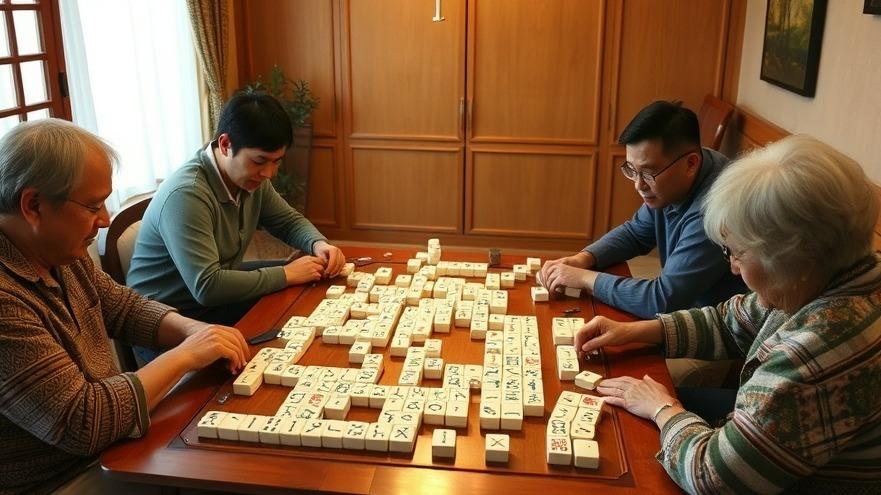
Exploring Healing Activities: From Games to Mindfulness
As the world continues to recognize the complexity of recovery journeys, we often overlook simple yet significant tools to aid this process. While traditional clinical approaches play a vital role, integrating lifestyle changes, such as engaging in classic games like Mahjong alongside structured therapy, can present truly unique benefits for individuals navigating recovery.
The Mental Benefits of Classic Games
Mahjong, a timeless game that combines strategy, memory, and social engagement, acts as both leisure and mental exercise. Research indicates that activities like Mahjong enhance cognitive function, reduce stress, and promote emotional regulation. The act of recognizing patterns and adapting strategies in games can be particularly beneficial for those in recovery, fostering skills that translate into real-world decision-making. Moreover, the sense of accomplishment that comes from playing can be a tremendous confidence booster for participants, reinforcing their self-esteem during challenging times.
Building Social Connections Through Play
Recovery can often feel like a lonely endeavor. Engaging in shared games facilitates social interaction and alleviates feelings of isolation. By participating in Mahjong, individuals not only enjoy spirited competition but also forge connections that can evolve into supportive networks. Such relationships are crucial for those recovering from addiction, as they serve as an antidote to the isolation that can trigger relapse.
The Value of Structured Recovery Programs
While hobbies like Mahjong offer substantial mental health benefits, they can be even more effective when integrated into a structured recovery plan, such as an Intensive Outpatient Program (IOP). IOPs provide a tailored approach, combining several weekly therapeutic sessions with the flexibility of continuing to live at home. This model not only promotes accountability but also allows participants to incorporate their hobbies into their recovery journey. Incorporating games into IOP sessions can help clinicians gauge individual progress while ensuring the recovery process remains engaging.
Why Combining Activities Works
The marriage of integrated activities like Mahjong and structured programs showcases significant advantages:
Cognitive Stimulation: Engaging in games sharpens the mind and keeps individuals focused on enjoyable tasks.
Emotional Resilience: Developing positive relationships reduces awareness of loneliness and isolation.
Accountability and Structure: These factors ensure ongoing progress and decrease the risk of relapse.
Skill Transfer: Strategies learned in games often parallel real-world problem-solving scenarios.
Positive Routine Building: Blending therapy and leisure allows for a balanced lifestyle supporting recovery.
Stress Reduction: Both game-playing and structured programs can lower stress hormones, enhancing overall mental well-being.
Long-Term Engagement: These practices offer sustainability, contributing joy and structure to future sobriety journey.
By understanding how these modalities work together, individuals can experience a long-lasting impact on their sobriety journey, fostering both fulfillment and resilience.
Encouraging a Holistic Approach to Wellness
For medical concierge practice owners, especially those focused on holistic health, recognizing and incorporating activities that promote mental wellness is essential. This understanding enables practices to better serve patients—helping them find balance through engaging activities as part of their recovery. By championing innovative approaches and emphasizing the importance of social connections and mental stimulation, practices can secure their reputation as leaders in the wellness space.
Recovery is not merely about abstaining from substances; it’s about engaging in life and rebuilding connections. By integrating simple activities like Mahjong and combining them with structured therapeutic programs, individuals can pave a satisfying path toward lasting sobriety and improved well-being.
 Add Row
Add Row  Add
Add 




Write A Comment